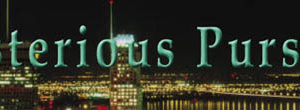 Film: The Locked Door (China)
Film: The Locked Door (China)
Director: Zhao Zhiping
Screenwriter: J. Nathaniel Berke
Cast: Huang Shengyi, Yang Zi, Calvin Sun, Wang Weixiang, Xu Songzi, Sun Tianyu, Li Man, Gao Jun
Genre: Drama
?That hunger of the flesh, that longing for ease, that terror of incarceration, that insistence on tribal honour being obeyed: all of that exists, and it exists everywhere.?
Ben Kingsley
What Closes Doors, What Opens Them Again
One day while doing her chores, Yan Wen accidentally knocks down a key and wonders if it might belong to the great locked door that hasn’t been opened since she was brought here. She tries it and encounters a story of repressive social mores that destroyed an artistic life.
Yan Wen knows something of this herself, having fallen in love with a man who used her and then betrayed her, leaving her to bear the brunt of shame for his callous act. How could she have known? He’d seemed like a prince; their early history was like one of those dramas prepubescent girls enact with their Barbies. Here, honey, have a wad of cash. Go buy yourself the nicest dresses you can find and meet me at a posh restaurant.
The film passes its message through a study of contrasts. For example, there are two great houses, each highly symbolic: the first a luxurious if somewhat cheesily decorated Western-style mansion, the second a sprawling traditional Chinese country retreat. The first is the perfect setting for the Barbie play, as delightful and as suspect. The second, though its context in the story is more tragic, is pulsing with integrity and permanence.
There’s an interesting use of colour. At the very beginning of the film we find black and white cinematography that rivals Citizen Kane‘s masterpiece-per-second quality?mythic, focused, and rich in detail. Bit by bit, colour is added until we have a full muted spectrum to match the complexity of the film’s sentiments.
Another interesting technique is the use of the short-term flashback; you’ve no sooner asked yourself why she looks so uncomfortable or why he suddenly starts crying than You’re taken back in time to a brief but telling scene that was skipped the first time you viewed the event.
One significant contrast is that between Yan Wen’s fiancé, Jin Ren, and the vagrant Zhang Tian, who for most of the film is referred to simply as ?The Homeless Man.?
Jin Ren is a respected hometown hero. He’s returned from America, where he struck it rich and became Westernized. He’s a dreamboat?a rich, flower-toting romantic?a great catch from all angles, impressing mom, pop, and sis all at once. But he turns out to be heartless, egotistical, and lacking in any sense of values outside of his own very blinkered sense of self-interest. The glamorous life he offers Yan Wen turns out to be just a smokescreen for his ill-fated addictions.
Zhang Tian starts out the film as a depressed, filthy, long-haired drunk. He’s beaten up by Jin Ren’s gambling buddies, who seem to be as drunk as he is, only cheerier and dressed in finer clothes. Jin Ren laughs and eggs them on.
The next day Zhang Tian is accused of rape and sent to prison, later demonstrating that sense of honour that is uniquely Chinese and that adorns the best of the country’s films. The Locked Door offers us a sense of how honour can be subverted into a stick for beating all the precious things in life into submission. But this view is offset by the film’s narrative evidence that honour can also be a heroic sacrifice for the righting of a wrong.
Feeling that he’s ruined Yan Wen’s life, as soon as his fortunes reverse Zhang Tian gives his life to making things up to her. Though he appears to be in love with her, he restrains himself as only a Chinese Tristan can do, sacrificing his desire to her chastity.
The locked room is filled with the sweet evidence of a life lived in love, art, and beauty. It was a false sense of honour that locked the door, and a relentless tragic leaning toward the sublime that opened it again.
The Locked Door manifests seven of the Mindful Bard’s criteria for films well worth seeing: 1) it is authentic, original, and delightful; 2) it provides respite from a sick and cruel world, a respite enabling me to renew myself for a return to mindful artistic endeavour; 3) it is about attainment of the true self; 4) it inspires an awareness of the sanctity of creation; 5) it displays an engagement with and compassionate response to suffering; 6) it gives me tools of kindness, enabling me to respond with compassion and efficacy to the suffering around me; and 7) it makes me appreciate that life is a complex and rare phenomenon, making living a unique opportunity.
Wanda also penned the poems for the artist book They Tell My Tale to Children Now to Help Them to be Good, a collection of meditations on fairy tales, illustrated by artist Susan Malmstrom.


